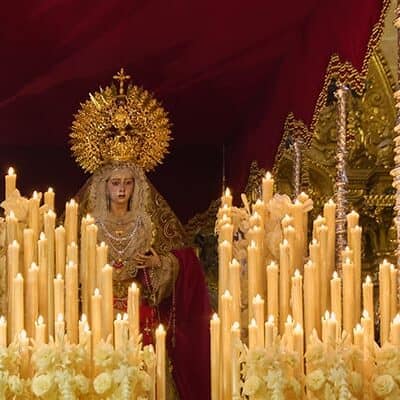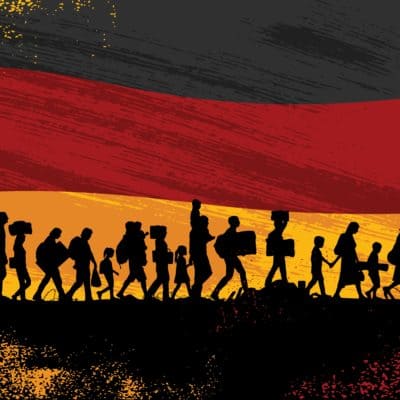by Michael Armstrong
Immigration has played a major role in the history and development of the United States. From the earliest pilgrims, seeking religious freedom, to Africans forced into hard labor, to various waves of Europeans fleeing persecution or pursuing economic opportunity, to the current preponderance of Latin American immigrants, all have affected the reality of life in America today.
While some other countries have a higher percentage relative to their population, no other nation has as many immigrants as the United States in absolute numbers. The total number was over 47 million in 2015, representing nearly 15% of the population. In 2016 legal immigration alone topped 1 million. While debate rages as to the benefit or detriment of continuing current practices, there is no denying that immigration has historically had, and will continue to have, a profound effect on the future of the country.
Religious freedom, as well as economic opportunity, provided much of the motivation for the earliest settlers. Acquiescence to the Church of England was required in Great Britain at that time, the paying of tithes was enforced like taxation. The earliest colonists sought a place to worship as they saw fit, but also the freedom to establish their own religions. While the creed enshrined was different, some of the systems closely resembled those which had been fled.
Of the thirteen colonies which were to eventually declare independence, eight had official religions. Those who would “dissent,” or proselytize differing beliefs, were often punished with varying degrees of severity. The “religious freedom” of that day certainly did not have the all-accepting, all-encompassing connotation that is implied when it is bandied about in this modern age. It was however the freedom to establish their beliefs, giving them their proper place and context in society.
While such religious practices may be deemed archaic, hateful, bigoted, or worse by today’s intellectuals they are hardly illogical. The majority of the colonists were protestants. The reformation had shaken the foundations of the old world. The printing press had given laymen direct access to the Holy Scriptures in a way that had never existed before. Suddenly, the vast differences between the religion of Rome, its Anglican cousin, and the actual teachings of the Bible were illuminated in stark relief. How could they continue to pay homage or financially support these systems which were not only dens of licentious corruption but abrogated the authority of God?
On reaching the new world they attempted to realign their society with scripture. One cannot escape the similarities, in many cases the Biblical narrative was intentionally emulated. The Israelites, on being established in the promised land, were not to allow idolatry or any other form of pagan worship to continue in their midst. Likewise, the second coming of Jesus Christ, the advent of God’s kingdom on this earth, is not going to be a smörgåsbord of polytheistic diversity. Quite the opposite. There will be one God, one law, and every indication that your options will be few. So it was in many of the early colonies, one sect would rule and all others be excluded.
Though it is currently popular to be aghast at such “intolerance,” the concept is frequently applied today. Is creationism tolerated in the scientific community? Belief in God, at least the God of the Bible, is largely considered a joke in modern society. While we mostly retain our freedom of speech (maybe not on-line) in the United States, there are many traditionally Christian places in the world where pronouncing the judgments of God will get you incarcerated or worse. In the wrong company you might not survive until the first responders arrive.
It is the very concept of what is good, right, and moral that has changed. What legislation has not yet accomplished media and entertainment attempt to. Their representations of society’s norms bring the collective weight of our unknown peers to bear. Do they not attempt to belittle and exclude certain points of view? While their methodology may be as heinous as their morals are corrupt, their goal is to create a society where everyone accepts their values, twisted as they may be. Dissent equals exclusion or punishment, yet it hypocritically masquerades as loving and accepting.
As the old cliché says, “birds of a feather flock together,” and so it is, even if we can’t comprehend what their flock is thinking. The impulse is universal and its practice is evident. Any visitor to the Oak Lawn district of Dallas would immediately be aware that its inhabitants are overwhelmingly homosexual. Check Google, it’s not a secret. Census data bears out these trends along ethnic lines, showing how people voluntarily group up. All of America’s major cities are evidence. Families settle near one another for convenience. To live among a group that shares the same customs, speaks the same language, is obviously desirable to a new arrival in a strange land.
The Puritanical Pilgrims, of Plymouth fame, sought to create a society of like-minded individuals. They were united in belief and religion. They hoped their pious example would inspire the Church of England to reform, to shed its lingering similarities to Catholicism. A public education system was created primarily to guarantee that future generations could read the Bible for themselves. Civil law was based on God’s law. Scripture was often referenced in court proceedings. Enforcement could be severe and in some cases demanded acquiescence to sectarian dogma.
Many colonies tolerated any orderly sect of Protestant Christianity. Catholics established and maintained a minority presence and Jewish communities took root in many of the growing cities. Only a few allowed either group to vote. Such stricture inevitably bred theological disagreement and actually led to the establishment of new settlements and colonies which welcomed people of disparate points of view. The magnanimous philosophies of equality, freedom, and liberty in law were yet in their infancy as far as application. For the majority of the inhabitants of this “new world” religion was not a peripheral issue. Often it was the express reason for undertaking the perilous journey to this unsettled land.
Once they were established in the land, the colonists became largely self sufficient. The average family spent very little on imports, purportedly only £5-15 annually. Population growth was primarily the result of domestic success. The healthy climate (cold winters killed most disease carrying insects) and abundant food led New England to enjoy the lowest death rate and highest birth rate in the world. Large families were the norm, most had eight or more children. This provided the population that settled the country, establishing new towns and forging the frontiers.
The final major colonies to be settled by immigrants were Pennsylvania and Georgia during the 1700’s. Even so, the foreign born population rarely reached 10% of any given area and then only in isolated instances. Natural population growth remained the norm for most of American history. Today that is no longer the case.
Recent history saw the natural growth rate reach 1.8% in the years following WWII. Currently it is reported at 0.7% and falling. Projections through 2060 calculate a total population increase of 98 million. Immigration will account for 64 million leaving only 34 million as the result of natural population growth. Of course, the natural growth number includes children born to people who previously immigrated.
The people of the United States need to seriously consider their past as well as their future. The foundations of this nation were laid by men and women with conviction and purpose. Though their beliefs were often disparate and conflicting, reliance on the guidance of scripture and divine providence were nearly universal. They formed the basis of our civil structure. The benefit of a national government in harmony with natural law has indeed become self-evident.
The toleration extended to the various sects inhabiting this country was revolutionary and extremely liberal for its time. It was a tremendous blessing to those who wished to live at peace amongst their neighbors and worship God with a clear conscience. Over the years the “accepting” nature of the United States has become somewhat of a national creed and has been applied in ways that would never have been countenanced in our early years. Time will tell if this blessing may yet become a curse.
We are no longer an overwhelmingly protestant Christian church-attending society unabashedly utilizing God’s law as the basis for civil society. National values and morality have been altered radically since this country declared its independence. Though the causes are many, some of the changes to our culture and customs are directly attributable to immigration.
Relatively little immigration occurred between the Revolutionary and the Civil War. Only 1% of the population was foreign born in 1815. Numbers began to increase in the years prior to the Civil War, primarily from Ireland and Germany, the majority of whom were Catholic. Percentage of the total population went from 1.6% in the 1830’s to 9.7% in the 1850’s, an increase of over 1200% in real numbers. These immigrants were not universally welcomed and many feared the country was being overwhelmed. The religion of Rome was largely considered contrary to American values.
The impact to our culture is historically demonstrable. Turning from its strict Puritanical roots, society began to embrace traditions it previously abhorred and even fled to escape. Today celebrations of Christmas, Mardi Gras, and St. Patrick’s Day among others dominate the social calendar. Comparatively, the earliest settlers would not even engrave a figure on a tombstone out of regard for the second Commandment.
The Page Act of 1875 was the first federal restriction on immigration. It specifically targeted and severely limited Asian immigration which had exploded during the gold rush. Prostitution became a major issue in many parts of California as the majority of immigrants were males who had come to the US alone on indentured servant-type loans. The spread of disease was feared as well as the practice of polygamy. At the time it was not uncommon, particularly in China, for a man to have a wife as well as a legally purchased concubine. In times of economic duress women and girls were often sold into service or prostitution. This did not sit well with a populace whose bloody Civil War had only recently led to the abolition of slavery.
Towards the turn of the century the primary origin of immigrants shifted to southern Europe and Russia. The new arrivals were predominantly Catholic and Jewish. Many also came from Poland, Sweden, Norway, Lebanon and Syria. Social concern and friction led to what is called the Literacy Act of 1917. Any immigrant over 16 years of age was required to read 30-40 words, in their native tongue, from an ordinary text. Asian immigration was banned outright, excluded zones were mapped along longitude and latitude lines and included India, Indonesia, the Middle East and the Arabian Peninsula.
Barred from entry were “alcoholics, anarchists, contract laborers, convicts, epileptics, idiots, imbeciles, paupers, the contagiously diseased, political radicals, polygamists, prostitutes and vagrants,” among others. President Woodrow Wilson actually vetoed this legislation but support for it was strong enough that his veto was overridden in both the House and the Senate. The Immigration Act of 1924 reiterated the policies hitherto unenforced by making provisions for courts of deportation.
It also set a quota for future arrivals based on the total foreign born population from any particular country already residing in the United States. Only a 2% per nationality increase was allowed annually. This was a major restriction on certain countries, arrivals from Italy fell more than 90%. Significantly, these quotas were not applied to nations in the western hemisphere and immigration continued from Mexico, the Caribbean, Central and South America.
The Hart-Celler Act of 1965 brought major changes to American immigration policies. It established the chain migration pattern that has driven the majority of subsequent immigration. Assertions by supporters that the new law would not significantly alter the demographics or culture of the United States have proven to be false. Legal immigration went from 68% European prior to the act to 83% Latin American and Asian in the proceeding decades. The total number of immigrants also increased dramatically from 11% of the total population before the legislation to 33% (including children born to immigrants) the following decade. The changes made have largely characterized American policy until the present time.
Many things separate our reality from that of our country as founded. We are no longer philosophically, morally or ethnically homogeneous. Many would not even allow that we are “under God” in a personal, let alone a national sense. What caused this land to prosper? Why do people want to come so badly that they will risk life itself to get here? This has been the case since our inception and it continues this very moment.
The United States of America is no happy accident. It has received the blessings of God Almighty. Though sometimes divided and misguided, the earliest settlers sought a place where they could live according to His laws and His statutes. The comparison to the promised land was not lost on them. The devotion of our citizens continued to drive public life for a very long time. In many places it still does. Government can never take the place of God. Man must have a higher power to look to than his woefully inadequate self. The belief in ultimate arbitration has always been the real source of the order, decency, lawfulness and generosity that has led our nation to prosperity.
Our country is changing. Religion is as corrupt as politics. Somehow we have failed to reveal the source of our greatness to our children. Having children is no longer even desirable as we become increasingly self-centered. Population growth is being driven by immigration. Can we successfully instill the principals necessary to maintain freedom in our new arrivals? Can we afford not to? The United States will be no better off than Guatemala or Mexico or Venezuela or China if the philosophies that have destroyed the quality of life in those countries are pursued here. The United States has always been a refuge for those trying to escape persecution. Freedom and prosperity have been the reward for untold millions who came seeking not a handout, but an opportunity.
If the United States forsakes its foundational values and allows itself to be fundamentally transformed, or worse, the reverberations will shake the foundations of the entire world. Our beacon of hope will be extinguished. Domestically we will suffer, but abroad we threaten to disturb the delicate balance of power that has persisted throughout modern history. Consider the influence the United States has had. Our power and our principles have shaped global relations. Will we engineer our own fall from within? If the United States willfully undermines its righteous foundations we can hope for no other outcome. God will not be mocked. If that happens, where will there be left to flee?










